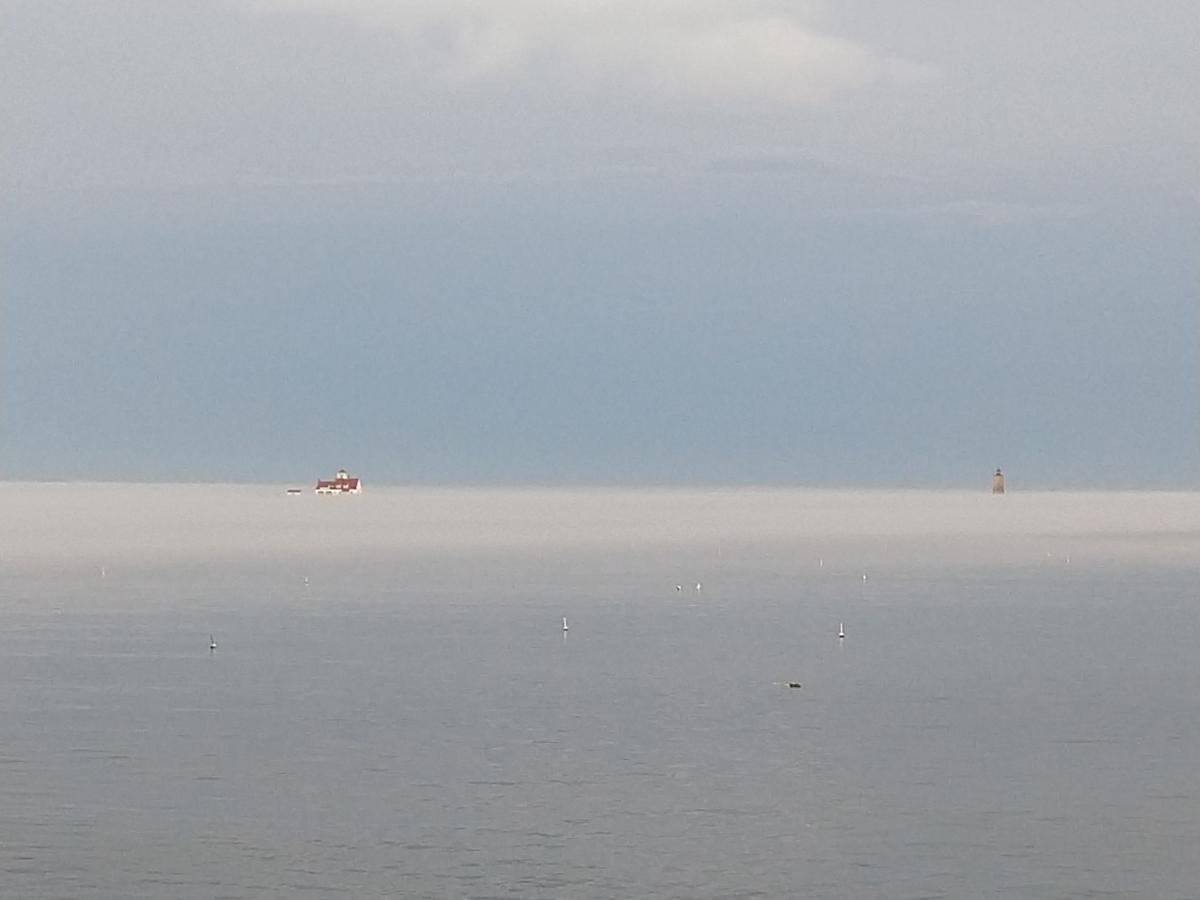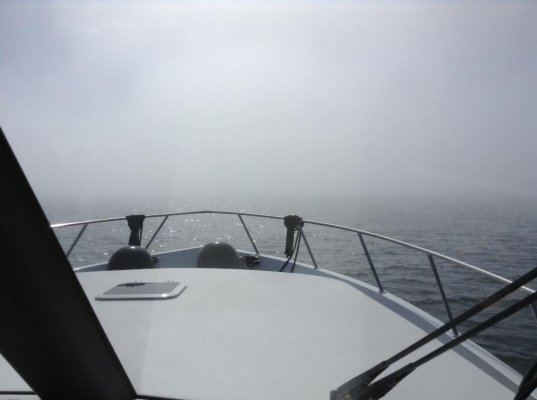mikecurreri
Member
- Joined
- Jun 27, 2012
- Messages
- 17
- Location
- Jacksonville, FL
- Vessel Name
- Bravo Zulu
- Vessel Make
- Sabre 45 SE
Operating in Fog
After years of Naval Officer training, we go by the numbers in fog: sounding all fog signals, one observer as far forward as possible looking and listening, slowing to a speed that would allow us to come to a full stop in less than half of the distance of the visibility, using the AIS and radar features available to track all contacts and maintaining a clear situational awareness. Our old Selene 55 had an automated whistle sounding feature, but we are forced to time our signals manually with our current boat (making sure that we do not sound precisely at the two minute points). Finally, we never assume that the others out there in the soup are going to do things right.
Mike Curreri
M/V Bravo Zulu (Marlow 70)
After years of Naval Officer training, we go by the numbers in fog: sounding all fog signals, one observer as far forward as possible looking and listening, slowing to a speed that would allow us to come to a full stop in less than half of the distance of the visibility, using the AIS and radar features available to track all contacts and maintaining a clear situational awareness. Our old Selene 55 had an automated whistle sounding feature, but we are forced to time our signals manually with our current boat (making sure that we do not sound precisely at the two minute points). Finally, we never assume that the others out there in the soup are going to do things right.
Mike Curreri
M/V Bravo Zulu (Marlow 70)




 Sent an email to the club mentioning their members' lack of seamanship, but received no reply.
Sent an email to the club mentioning their members' lack of seamanship, but received no reply.